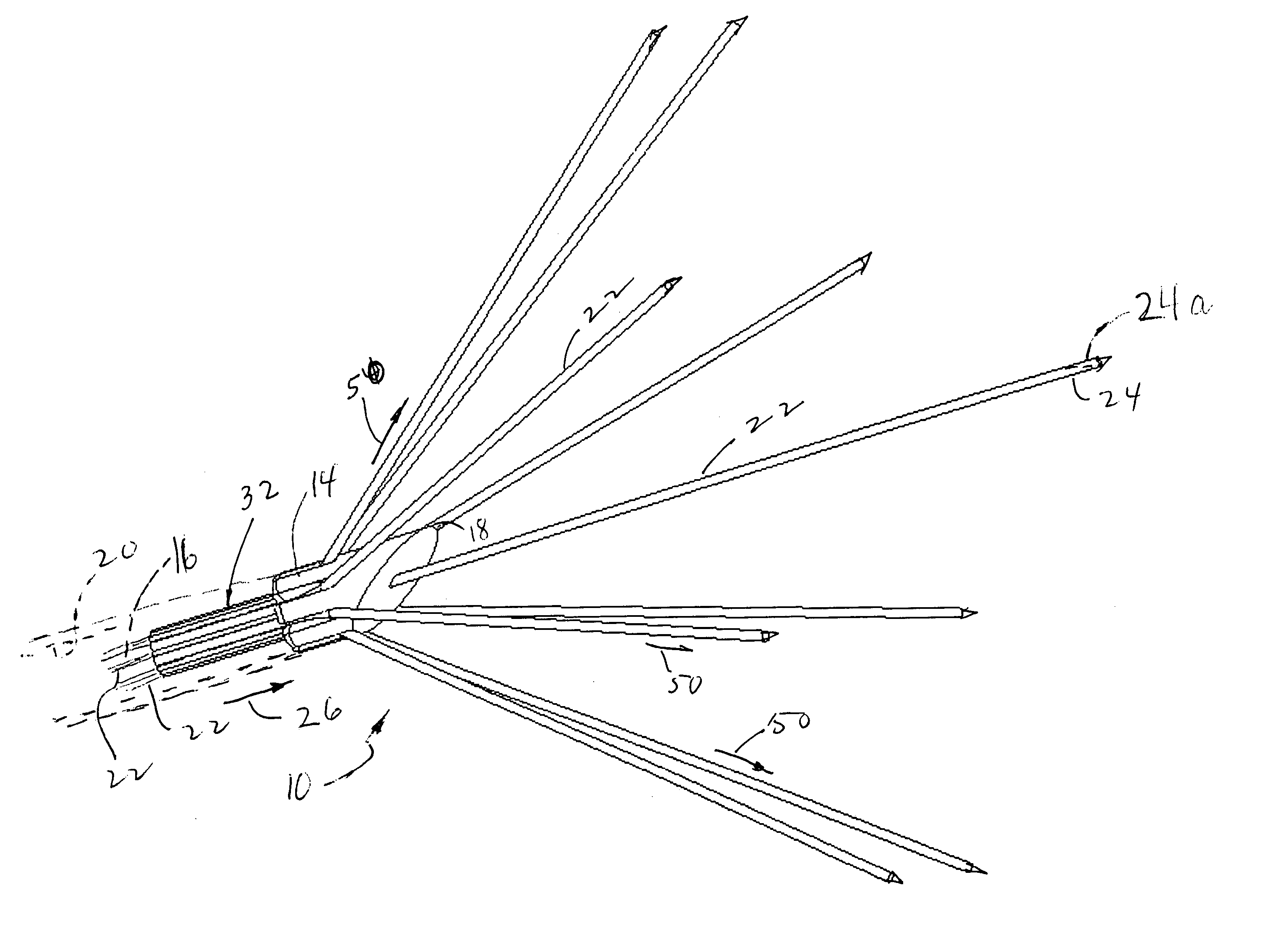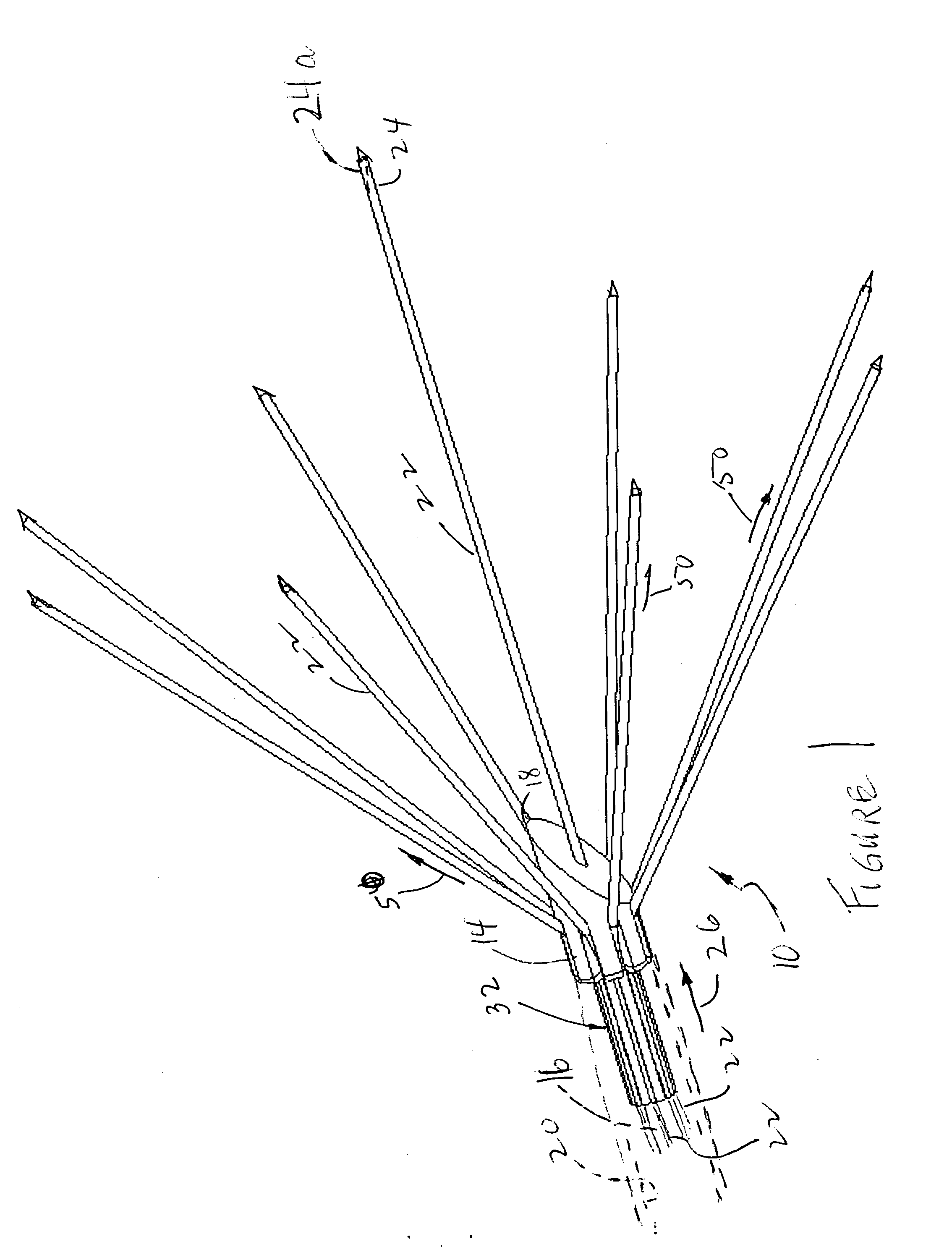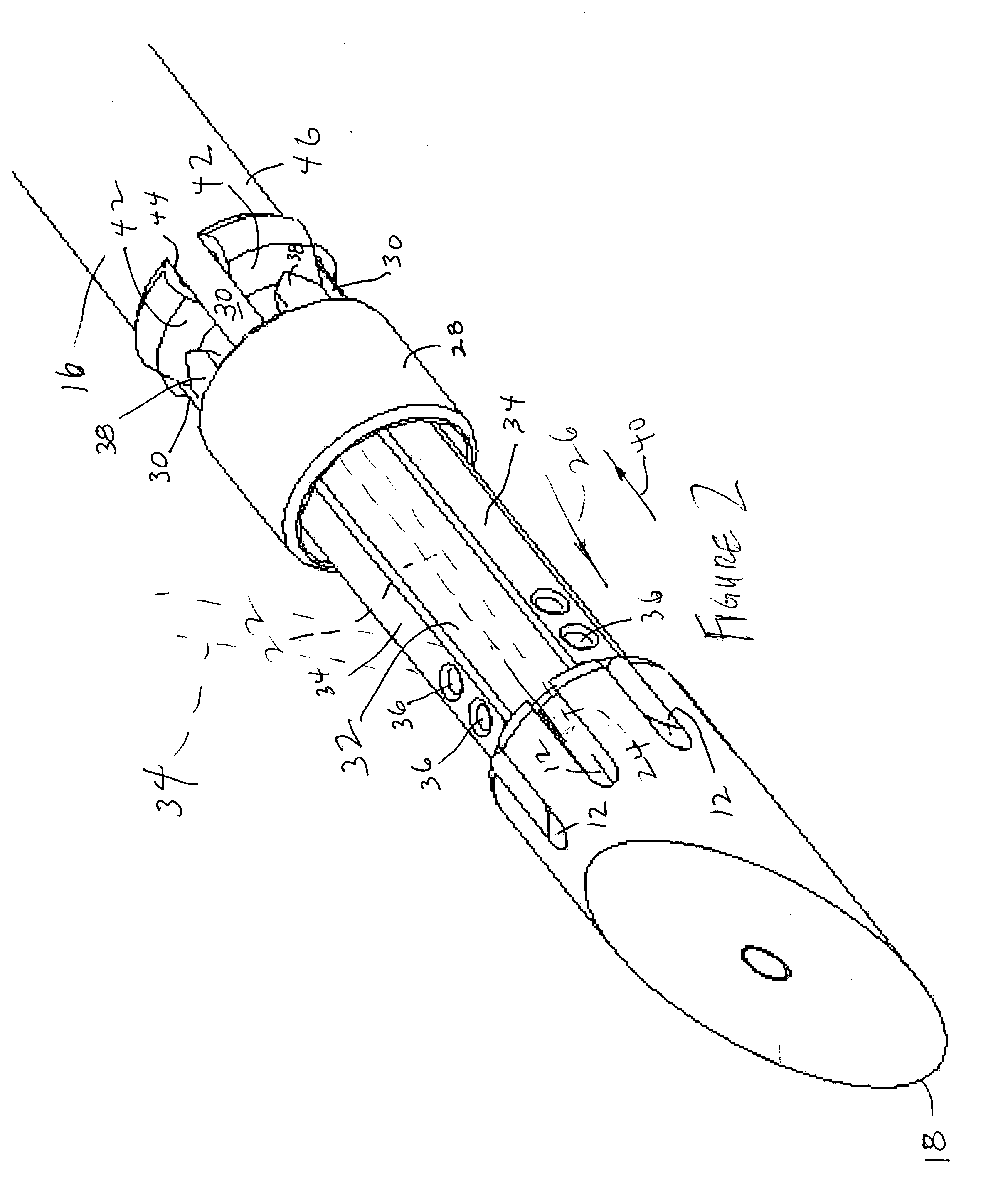Radio frequency ablation device for the destruction of tissue masses
a tissue mass and radio frequency ablation technology, applied in the field of radio frequency ablation device for the destruction of tissue mass, can solve the problems of time-consuming, relatively expensive, and not being available to many individuals, and achieve the effect of reducing recovery tim
- Summary
- Abstract
- Description
- Claims
- Application Information
AI Technical Summary
Benefits of technology
Problems solved by technology
Method used
Image
Examples
Embodiment Construction
[0082] Hyperthermal treatment of tissues of the human body is well established. It has been used for hemostasis, destruction or ablation of tissues, tightening or shrinkage of various tissues and for other purposes. In accordance with the invention this and other methods for destruction of tissue may also be deployed, such as the delivery of laser light at high intensity levels, the use of conventional resistive heating elements, and other energy delivery devices which can be deployed within tissue. The source of heating may be varied and includes but is not limited to radiant heating, electrical current, radio frequency or microwaves, ultrasound and others.
[0083] A number of methodologies utilize radio frequency heating of tissues for ablation or shrinkage by the application of the energy to the tissues through specialized delivery devices. These devices often have electrodes or antenna that are placed into, or onto, the tissue to be treated. Some of these systems incorporate moni...
PUM
 Login to View More
Login to View More Abstract
Description
Claims
Application Information
 Login to View More
Login to View More - R&D
- Intellectual Property
- Life Sciences
- Materials
- Tech Scout
- Unparalleled Data Quality
- Higher Quality Content
- 60% Fewer Hallucinations
Browse by: Latest US Patents, China's latest patents, Technical Efficacy Thesaurus, Application Domain, Technology Topic, Popular Technical Reports.
© 2025 PatSnap. All rights reserved.Legal|Privacy policy|Modern Slavery Act Transparency Statement|Sitemap|About US| Contact US: help@patsnap.com



